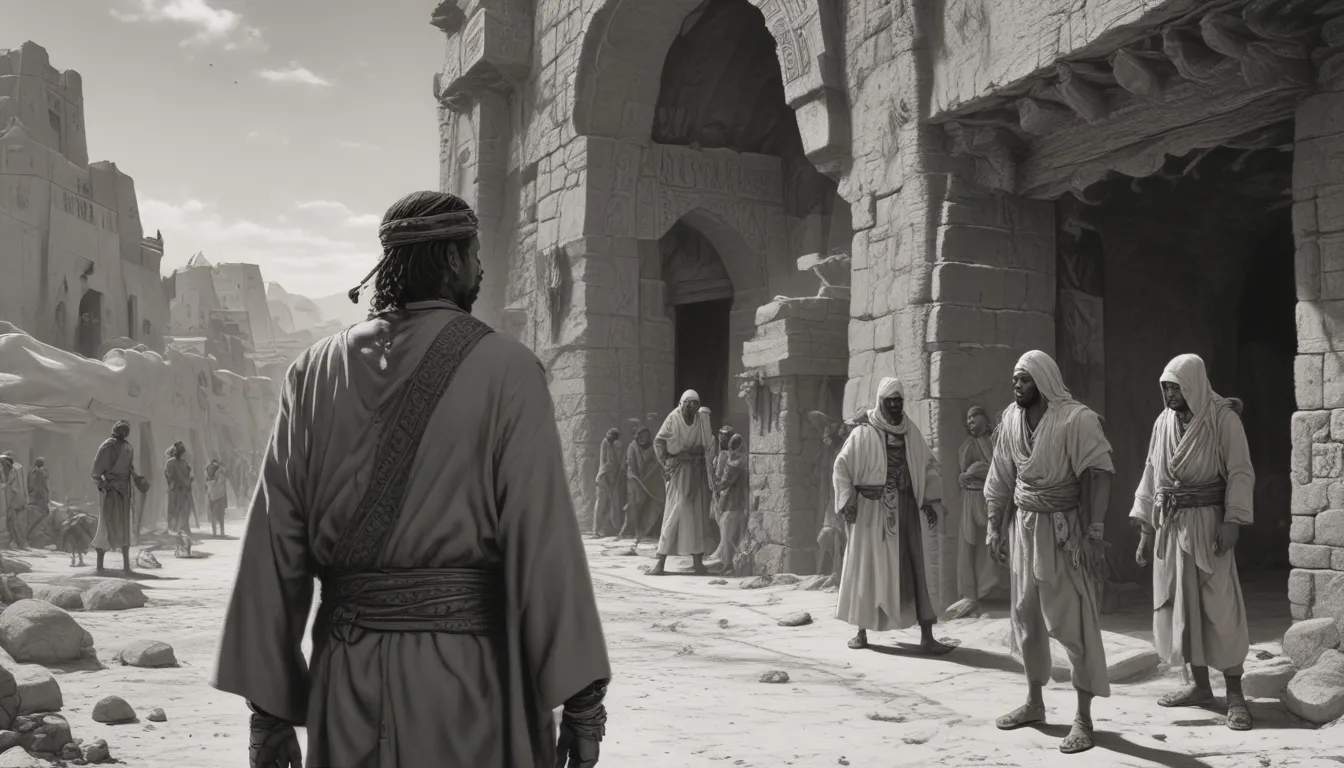The images in our articles are for illustrative purposes only and may not exactly match the content. They are intended to capture your interest and complement the text, not to replace it.
Nestled on the edge of the Sahara Desert in Mali, West Africa, the ancient city of Timbuktu has long captivated the imagination of adventurers and historians alike. Renowned for its rich history, vibrant culture, and enigmatic allure, Timbuktu holds a myriad of fascinating secrets waiting to be uncovered. Join us on a journey to explore 20 intriguing facts about Timbuktu as we delve into its storied past, unravel the mysteries surrounding its role as a center of trade and scholarship, and discover the enduring legacy of this legendary city.
Key Takeaways:
- Timbuktu, an ancient city in Mali, West Africa, was once a vibrant center of learning, trade, and cultural exchange, attracting scholars and traders from diverse regions.
- Despite facing challenges, Timbuktu’s rich history, vibrant festivals, traditional crafts, and diverse cultural tapestry continue to captivate visitors and showcase the city’s enduring spirit of resilience and cultural richness.
Timbuktu: A Jewel of West Africa
Timbuktu is located in Mali, West Africa, on the southern edge of the Sahara Desert. Situated near the Niger River and the country’s border with Mauritania, Timbuktu’s strategic location has historically made it a vital center for trade and cultural exchange in the region.
The Golden Age of Learning and Scholarship
During the 15th and 16th centuries, Timbuktu flourished as a beacon of intellectual pursuit. The city boasted numerous universities and Quranic schools, attracting scholars from across the Islamic world to study disciplines such as astronomy, mathematics, and medicine. This reputation solidified Timbuktu’s status as a hub of knowledge and education.
The Heart of Trans-Saharan Trade
Timbuktu served as a crucial trading post for goods such as gold, salt, ivory, and enslaved people, facilitating commerce between North Africa, the Mediterranean, and sub-Saharan Africa. This trade network played a pivotal role in the economic and cultural development of the region.
Treasures of Knowledge: Ancient Manuscripts
Timbuktu is home to an extensive collection of ancient manuscripts dating back to the medieval period. Covering a wide range of subjects, including religion, science, literature, and law, these manuscripts offer valuable insights into the intellectual and cultural heritage of the city.
Djinguereber Mosque: A Symbol of Architectural Splendor
Constructed in the 14th century, the Djinguereber Mosque stands as a testament to Timbuktu’s architectural and religious significance. Its unique design and historical importance have earned it recognition as a UNESCO World Heritage Site, attracting visitors from around the world.
Vibrant Music and Festivals
Timbuktu is renowned for its lively music scene and vibrant festivals, showcasing the rich cultural heritage of the region. Traditional instruments like the ngoni and the kora, along with captivating performances, create an enchanting atmosphere that embodies the artistic traditions of Timbuktu.
Revival and Resilience
Despite periods of decline, recent efforts have been made to revitalize Timbuktu and preserve its cultural legacy. This renewed interest has sparked a resurgence in the city’s historical significance, attracting scholars, adventurers, and enthusiasts to explore its hidden treasures.
Festival in the Desert: A Celebration of Culture
The annual Festival in the Desert near Timbuktu celebrates music, dance, and Tuareg culture, garnering international acclaim for its vibrant showcase of artistic talent and cultural diversity. The event brings together artists and attendees from diverse backgrounds, fostering cultural exchange and appreciation for the traditions of the region.
Mud-Brick Marvels: Architectural Heritage
Timbuktu’s traditional mud-brick buildings, adorned with intricate designs and patterns, reflect the city’s architectural style that has endured for centuries. These structures stand as a testament to Timbuktu’s rich cultural heritage and contribute to its distinctive charm.
Cultural Diversity and Harmony
The cultural tapestry of Timbuktu is woven with diverse ethnic groups, languages, and traditions, creating a dynamic environment that celebrates unity in diversity. This cultural mosaic has been instrumental in shaping Timbuktu’s resilience and fostering a sense of communal harmony.
Ahmed Baba Institute: Preserving Intellectual Heritage
Named after the renowned scholar Ahmed Baba, this institute is dedicated to safeguarding Timbuktu’s collection of ancient manuscripts and promoting scholarly research and educational initiatives. It stands as a testament to the city’s commitment to preserving its intellectual legacy.
Natural Beauty and Culinary Delights
Beyond its history and culture, Timbuktu is blessed with stunning natural landscapes, including the majestic Niger River and the expansive Sahara Desert. The city’s culinary scene offers a delightful array of traditional dishes that embody the vibrant flavors and culinary traditions of the region.
Enduring Resilience and Spirit
Throughout its history, Timbuktu has demonstrated a spirit of resilience and perseverance that is ingrained in its cultural fabric. This enduring strength is a testament to the city’s legacy and its timeless significance in the annals of history.
Unveiling the Mysteries of Timbuktu
Timbuktu, a city steeped in history and culture, continues to captivate the world with its enigmatic allure. From its prestigious position as a center of learning and trade to its enduring legacy as a UNESCO World Heritage site, Timbuktu stands as a testament to the resilience and ingenuity of human civilization. Explore the wonders of this ancient city, uncover its hidden treasures, and embrace the spirit of discovery as you delve into the rich tapestry of Timbuktu’s heritage.
Explore Timbuktu’s rich history, cultural traditions, and architectural marvels as you embark on a journey through the heart of West Africa. Uncover the layers of time that reveal the captivating essence of this legendary city and immerse yourself in the vibrant tapestry of Timbuktu’s historical significance. Join us in celebrating the wonders of Timbuktu and embrace the spirit of adventure and discovery as you explore the mysteries of this legendary Malian city.






